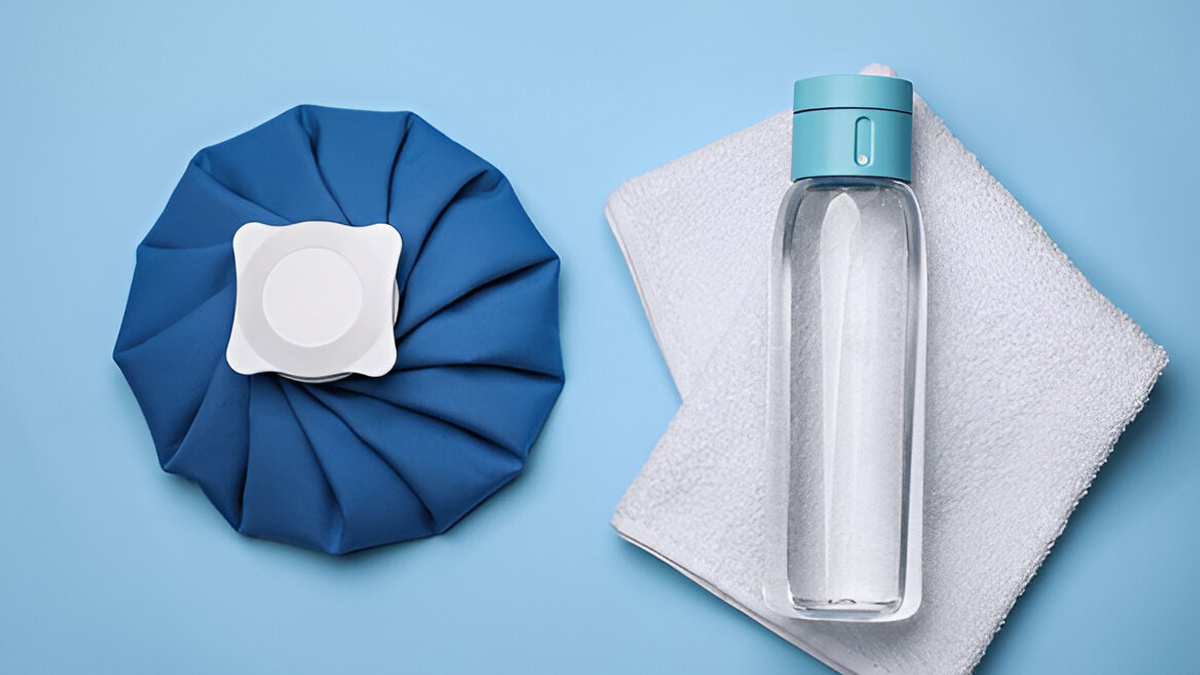
Have you ever felt extra stiff or achy when it starts to rain? Like your body’s suddenly heavier, your knees creak more, or your back feels sore for no reason? Many people notice these aches creeping in during monsoon, and it’s not just because we're curled up on the couch more often. The truth is, your body does react to the weather, and those rainy-day pains have a very real explanation.
Table of Content:-
As it turns out, monsoon body aches are not all in your mind. There is actual science behind why you can feel achy, heavy, or sore when the weather turns gloomy.
The Weather-Body Connection

It all depends on the barometric pressure or rather, how it varies during monsoon. When the air pressure decreases (which is usual with humid or rainy weather), the tissues in the body will slightly expand. For people with joint problems, old injuries, or even those who are more sensitive, this expansion can irritate surrounding nerves and cause pain or a dull, lingering ache.
Humidity and temperature fluctuations during monsoon have an impact on muscles and joints. Arthritis, fibromyalgia, and even vitamin D deficiency patients may experience more stiffness or pain. Even the healthy ones may experience tiredness or body aches.
Also Read: Monsoon Maladies: Expert Shares 4 Pre-Monsoon Health Tips To Steer Clear Of Viral and Flu
Common Symptoms During Monsoon
- Dull, persistent body pain, especially in the legs, knees, or lower back
- Experiencing stiffness in the morning after prolonged sitting
- Headaches or neck tension
- Sluggishness or a heavy feeling in the limbs
- Old injuries flaring up unexpectedly
For people with jobs that involve long hours sitting, perhaps at a desk or working from home, the symptoms may be worse. Combine this with damp environments, less sunlight exposure, and fluctuations in your daily activity, and it's a recipe for sore joints and muscles.
Why It Affects Some More Than Others
People who have underlying conditions, such as arthritis, osteoporosis, or sciatica are especially vulnerable to weather pain. However, even young adults with poor posture, minimal physical activity, or previous injuries may be in more pain than usual.
Vitamin D deficiency, which typically worsens during monsoon due to reduced sunlight exposure, may also cause fatigue and aching bones or muscles. Since the body produces vitamin D after exposure to the sun, drab skies and remaining indoors for days may result in lowered levels, affecting muscle power and bone mineral content.
Home Remedies and Relief Tips
If you’ve been waking up sore or feeling unusually stiff this monsoon, here are some simple yet effective remedies that may help:

- Keep Moving: Low-impact stretches or yoga can help keep joints lubricated and muscles active. Even a 15-minute walk indoors can make a difference.
- Warm Compress: A warm water bag or heating pad can help ease stiffness and improve circulation in sore areas.
- Magnesium and Vitamin D: Consider taking supplements only after talking to your physician. Bananas, almonds, eggs, mushrooms, and milk may also bring relief.
- Keep Dry and Warm: Avoid sitting in damp clothing or cold locations for extended periods. Keep a light shawl or jacket handy if you are bound to catch a chill.
- Massage Therapy: Gentle massage with mustard or sesame oil may help improve circulation and reduce tension, especially in the lower back and knees.
- Stay Hydrated: Cooler temperatures are not an excuse for not staying hydrated. Dehydration-prone muscles are more likely to cramp.
Also Read: Dangers Of Eating Raw Fruits During Monsoon: Which Fruits Are Safe To Eat?
When to See a Doctor
If your pain persists, interferes with your mobility, or increases in severity despite self-management, it's best to see a doctor or orthopaedic specialist. It might be a symptom of an underlying condition, such as arthritis, compression of the nerves, or a vitamin deficiency that requires medical treatment.
[Disclaimer: This article contains information for informational purposes only. Hence, we advise you to consult your professional if you are dealing with any health issue to avoid complications.]
Also watch this video
How we keep this article up to date:
We work with experts and keep a close eye on the latest in health and wellness. Whenever there is a new research or helpful information, we update our articles with accurate and useful advice.
Current Version